At Steve Blank's Request: Here is BootstrapLabs' Go Global Startup Playbook
 Steve Blank recently published an interesting post called: Born Global or Die Local – Building a Regional Startup Playbook. I have to say that I loved the first part of the title as I often make the point that today, startups have to think Global because while they can go and market their product anywhere on the planet, startups from anywhere on the planet can come compete in their local market.
Steve Blank recently published an interesting post called: Born Global or Die Local – Building a Regional Startup Playbook. I have to say that I loved the first part of the title as I often make the point that today, startups have to think Global because while they can go and market their product anywhere on the planet, startups from anywhere on the planet can come compete in their local market.
I often site the example of Cyworld, a now defunct Korean social network that launched a Facebook-like service 2 years before Facebook ever existed, was used by the majority of people in the country…yet, died within 12-18 months after Facebook entered Korea. Koreans were seating on the global social network revolution but never realized (or cared) to think that maybe other people around the world would want to use a similar service.
As you can see in the comment section of Steve Blank’s blog, I was not in full agreement with some of his point, or maybe we were in agreement and I just mis-interpreted it as it seems he was just putting a “straw-man” out and awaited for the community to engage and share their own best practices. At his invitation, I shared what I like to call BootstrapLabs’ “Go Global Playbook” for (tech/software) startups and here is the outline of the post (which can also be read on Steve Blank blog).
If you are a founders with differentiated products and technology and have the passion, drive and ambition to build a global company, no matter where you are from or currently located in the world continue reading:
- Ask yourself why you want to build this business?
- Ask yourself how big is the opportunity/market?
- Ask yourself if your goal is to support yourself and your family or making a dent in the universe (and hopefully achieving the former at the same time)?
If the later, keep on reading:
- Assemble a kick-ass team that can code, design, hustle
- Be confident about what you know, humble about what you don’t
- Fall in love with the pain point you want to solve, not the solution
- Learn, live and breathe lean startup mindset, methodology
- Add a bit of Innovation Jugaad spirit (“do more, with less, for more”)
- Build MVP, validate problem/solution fit with happy(ish) customers/users
- Raise a bit of capital/seed/love money if you must but don’t mess-up your cap table with silly deals as it will kill your chances of future success faster than you can pronounce “Series A”.
- Be very vary of early large customers offering you money for your product in exchange for customization. This may end up killing your dream of scaling globally and unfortunately a pattern we detect in every ecosystem outside of Silicon Valley given the lack of follow-on funding options…startups end up scarifying the scalability of their product in exchange for early revenue.
If you want to scale and haven’t given up on your dream to make a dent in the universe, keep reading:
- Ask yourself: is my product/market/solution global or regional. Say is it “Africa for Africa” or “Middle East for Middle East”; am I a “me too” of something that already exist in Silicon Valley or elsewhere?
If answer is yes, you should probably stay local and find (local) capital that cares about this market and opportunity. If answer is no and you are differentiated, if your product has global potential, if you users/early adopters are somehow already in the US (and curiously in the Bay Area), then do as follow:
Contact me or Nicolai at BootstrapLabs to confirm all of the above. Worse case scenario we could save you a lot of expenses, disappointment and headache by telling you that you are probably best off staying where you are…If we think you are indeed pretty amazing, we will do the following things together:
- Invest some seed capital in your company to give you some boost and Silicon Valley social proof
- Reincorporate your company in Delaware
- Convert your local company into a wholly-owned subsidiary so you can hire talented developers in your home country (in-sourcing) and not have to compete for engineers with Facebook, Google, Twitter, etc.
- Coordinate corporate, immigration and tax attorney to make sure you can secure a long term visa so you can stay and work in america, build your startup
- Work side-by-side, day-in and day-out to achieve first product market fit, then scalable product market fit in the next 12 months.
- Open all the relevant doors in our network to accelerate your iteration loop/information flow and attach the right skill sets and people to your founding team.
- Upon successfully raising your Series A round in Silicon Valley, we will help you think about leveraging (our) global grass-route network across the globe sooner rather than later to scale back to the world from here, otherwise companies like RocketInternet and other clone factory will do it for you.
People say “Silicon Valley is a state of mind more than it is a place”, I would agree but for that very reason, it will take decades for other ecosystems to “change their mindsets” and be more like Silicon Valley.
In conclusion, my best advise for founders that want to go global (and have all the right stuff per the above), come to Silicon Valley sooner rather than later, get adopted by this amazing ecosystem and scale back to the world from here with deep pocketed, patient, smart investors on your side.
The journey is not an easy one but I guarantee one worth living for and BootstrapLabs is there to help you along the way.Here you can find a related Prezi why “Your startup will fail to go global unless…”.



